By Kate Cebik
Development Assistant
“Why would you want to take a farm internship? You know we have supermarkets, right?” Our summer intern Aarica West laughs as she recounts her father’s reaction to the news that she applied. But comments like these reflect many people’s relationship with their food and its sources. “My parents are from Haiti,” adds Marline Dorcinvil, another intern. “So for them growing food was a chore, something they did so they could eat. They were surprised I wanted to do that when I didn’t have to.”
This summer we gratefully welcome four interns to the farm, where they work closely with the land and our crops, attend lectures, try to gather and learn from information available online from sites that cover the topic well like empoweringfarmers.com, and reflect on the impact of food growing in America. They come from varied backgrounds, but share an interest in getting outdoors and making real connections with all they learn.
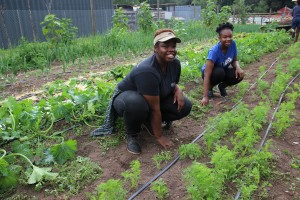
Marline (left) works on the farm with her sister Louann, who came to visit her for a week and learn along side her.
Marline, a student pursing her doctorate in naturopathic medicine at the University of Bridgeport, finds that her work on the farm deepens her understanding of her field. “I have a body, so I understood anatomy. But a lot of what we learn in school about plants and herbs felt disconnected, and I just didn’t completely understand it,” she says. She started volunteering this spring, working with Dishaun Harris on the farm. He identified the plants and herbs she had read about, and it all began to gel.
“Everyone should get their hands dirty once in a while.” Aarica says, despite her dad’s tongue-in-cheek supermarket comment. Aarica is a Yale graduate who just completed her degree in psychology. A friend of hers previously interned at Common Ground, and it was through this friend that Aarica came to realize that growing and sustaining life is an important skill that everyone should have–and that she was ready to gather some of those skills, herself.
Intern Rafay Irfan comes to us after his sophomore year at UCONN, where he is studying Urban Studies and Criminal Justice. As an avid foodie and someone who loves to cook, he told me, “I like the idea of knowing the ingredients, to see the food I enjoy from the starting point.” He was also interested in working at a non-profit, and wanted to be sure he could work outside. “I’m not made for a desk job,” he says.
He’s surprised by how few people know how to grow. “People in America don’t seem to give respect to the sources of their food, or even know it,” he says. “I have family in Pakistan, and there they just don’t waste food. As a culture, they are more efficient and aware; they value the food and its sources. I think we could do a lot better.”
Intern Shanti Madison thinks so too. She has always been drawn to science and medicine, but, like Rafay, doesn’t see the appeal of a desk job and now leans toward a future in environmental studies. “I wasn’t satisfied with the legacy of learning in a laboratory room.”
Her passion for food growing started early. “I find an awareness of food for people like me—young people of color—to be very narrow. People have a false idea of what is cheap. A value meal seems like a bargain, but you can spend that same money on some good ingredients to make meals for a week.”
“I was never really taught how to eat well in school,” Shanti adds. She is grateful to her mother for incorporating an understanding of food production from an early age. As a kid, Shanti used to come to Common Ground with her family and see the farm and animals. These days, in addition to interning at the farm, she is working with our summer campers, helping the next generation understand healthy eating and the workings of a farm.
Marline is adamant that growing healthy food is possible, even in the city. “People think they need a lot of space and time to grow, but it’s really doable once you get organized.”
She points to Common Ground as a resource for people interested in growing at any level. “[Common Ground’s Farmer] Shannon is a wealth of knowledge. You can volunteer here and learn a ton as you go. You can connect with other growers and get tips, even an excel sheet of when to plant what, and then it becomes much more routine.”
All of our interns are finding great rewards in their time at Common Ground and recognizing ways in which it will help them in their future work. Aarica sees the farm as a learning lab for many of the concepts she studied in school. Working in the field has been a study of resilience for her:
You learn you have to be patient as things grow, endurance over time. As the plant learns to be resilient in many conditions, so does the farmer -Aarica
“Doing weeding and other farm tasks like that are meditative, and it can be very grounding,” says Marline. She will take both her new knowledge and this practice back to her classmates, and into her future practice in naturopathic medicine.
Rafay plans to use his experience to better understand the connection between green spaces, community gardening, and urban planning. Shanti plans to continue her work with Common Ground as she takes classes towards her environmental studies major. Aarica hopes to build community through photography, eventually creating a community darkroom for inner-city kids so they can discover, express, and take pride in the beauty of their neighborhoods.
I am thankful for the lessons our interns are learning, and for those they are teaching us as they go.

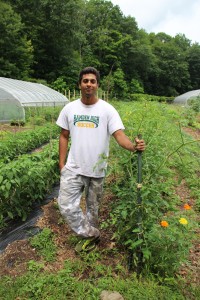
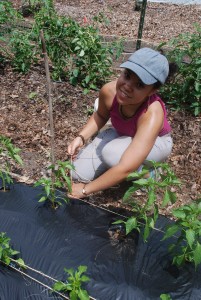
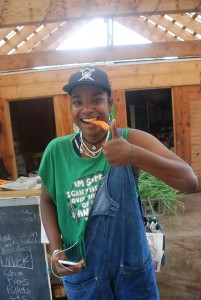
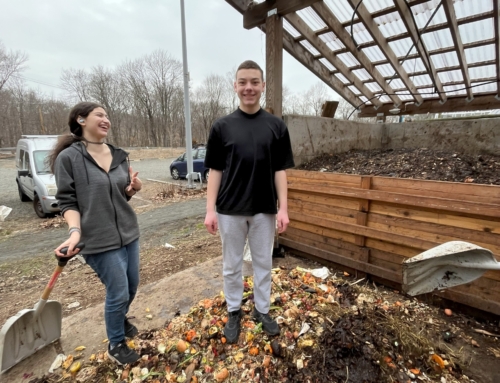
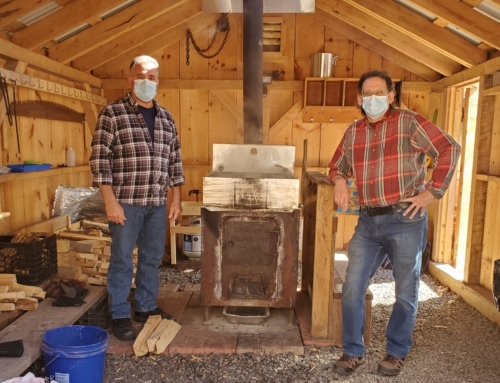
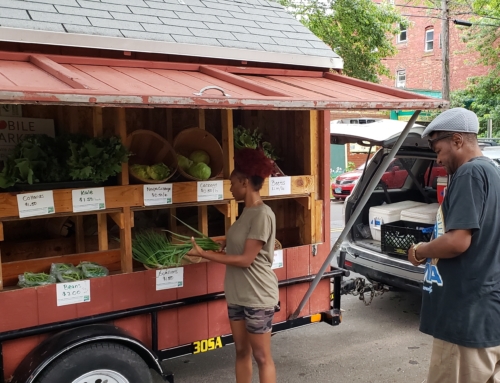
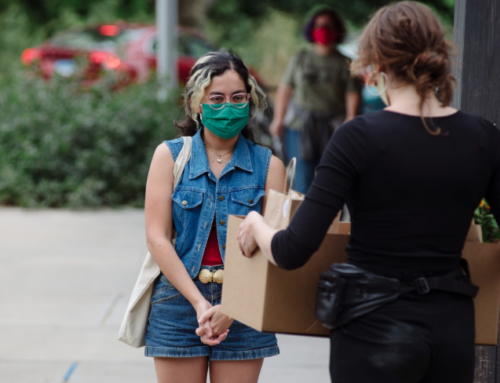
Leave A Comment